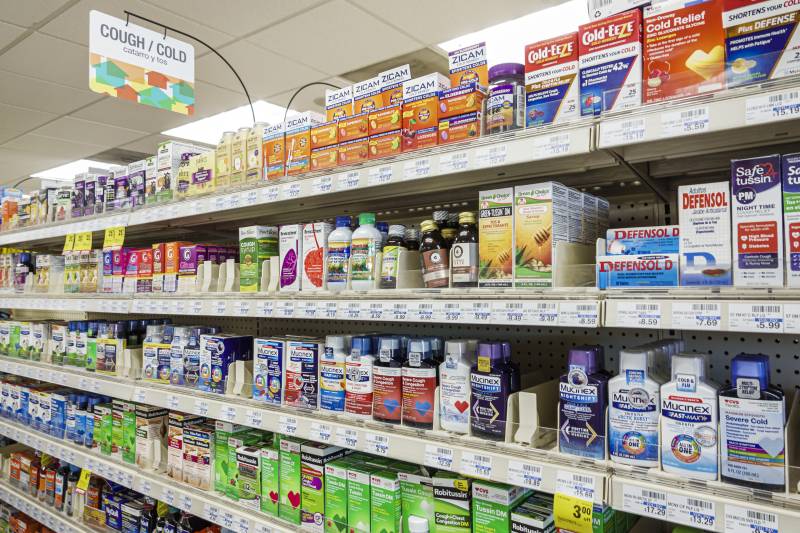Hendeles believes regulators are likely to ultimately find that many other over-the-counter drugs are futile, too. “I know for sure that the cough suppressants and the expectorants are next in line.”
He points to a compilation of data he presented in a 2018 paper published in the journal Allergy and Asthma Proceedings, where he concluded the marketing claims on products designed for respiratory symptoms are overblown. And the evidence for decongestants, expectorants and cough suppressants does not “justify their use.”
Industry groups like the Consumer Healthcare Products Association maintain that phenylephrine has provided the public with clear health benefits for years. They asked the FDA not to remove it from a list of safe and effective over-the-counter drugs, arguing it provides the public with accessible treatment.
“Simply put, the burdens created from decreased choice and availability of these products would be placed directly onto consumers and an already-strained U.S. healthcare system, which is why CHPA encourages the panel to consider the real-world experience and needs of consumers when making decisions that will have such broad implications,” said Marcia Howard, the association’s vice president of regulatory and scientific affairs, in a statement.
So, what can help your runny nose?
Hendeles recommends steroidal nasal sprays for people suffering from allergies. Look for fluticasone (Flonase) or triamcinolone (Nascort). One squirt in each nostril. Evidence suggests Oxymetazoline Hydrochloride (Afrin or Sinex) is the best nasal spray for people who are sick with a respiratory illness.
What about the rest of the meds lining your medicine cabinet?
“If you’ve used something and you felt like it was helpful, I don’t think there’s a problem with that,” said Eggbert. “There’s little harm for people who are looking for relief. And I do believe in the placebo effect.”
But don’t look for a magical concoction. Single-ingredient products will help lower the possibility for side effects, according to Dr. Shalini Lynch, PharmD, health sciences clinical professor at UCSF’s School of Pharmacy. She says it should be obvious in a day or two if the product is relieving a desired symptom.
Science also supports some natural remedies. Saline nasal rinses may help clear your sinuses and honey can quell your cough. Additionally, it may be worth standing in a steamy shower or filling your humidifier to open your nasal passages. However, Lynch’s best advice is simply to lay low and hydrate.
“The common cold is something that pretty much needs to run its course,” she said. “You want to feel better instantly. But the reality is most cough and cold, viral types of upper respiratory infections, they just take time to go away.”


